44 what food products do not need food labels by law
Food labelling and packaging: Overview - GOV.UK Suitable packaging is marked 'for food contact' or has a symbol on it that looks like a wine glass and a fork. There are special rules for using plastics, ceramics or cellophane for packaging. What foods do not require a nutrition facts label? - Sharecare In the National Labeling and Education Act, certain foods are exempt from nutrition labeling. These include: Ready-to-eat food that is not for immediate consumption but is prepared on site. For example, products from bakeries and delis or candy store items. Foods that do not contain significant amounts of nutrients.
'Best Before' labels scrutinised as food waste concerns grow As awareness grows around the world about the problem of food waste, one culprit in particular is drawing scrutiny: "best before" labels. Manufacturers have used the labels for decades to estimate peak freshness. Unlike "use by" labels, which are found on perishable foods like meat and dairy, "best before" labels have nothing to do with

What food products do not need food labels by law
Packaging, Labeling, Transporting, Storing — Food Law Indirect food additives (e.g., packaging) may be only used under conditions of good manufacturing practice; that is, the quantity 1) does not exceed the amount reasonably required to accomplish the intended effect in the food, 2) shall not exceed any prescribed limitations, 3) shall not be intended to accomplish any physical or technical effect in the food except as permitted by regulation, and 4) the article that contacts food shall be of a purity suitable for its intended use. Foods That Are Exempt from Federal Nutrition Labeling - OnHealth Yes, under the Nutrition Labeling and Education Act of 1990, these foods are exempt from nutrition labeling: food served for immediate consumption, such as that served in hospital cafeterias and airplanes, and that sold by food service vendors (such as mall cookie counters, sidewalk vendors and vending machines); Packaging and labelling | Food Standards Agency Certain foods are controlled by product specific regulations and they include: bread and flour cocoa and chocolate products soluble coffee milk products honey fruit juices and nectars infant...
What food products do not need food labels by law. Food Product Dating | Food Safety and Inspection Service The U.S. Department of Agriculture (USDA) does not require quality or food safety date labels for products under its purview. However, the USDA does require a "pack date" for poultry products and thermally processed, commercially sterile products to help identify product lots and facilitate trace-back activities in the event of an outbreak of foodborne illness ( see 9 CFR 381.126 and 431.2(e), respectively). Food labelling and packaging: Food labelling - what you must show - GOV.UK There are special rules about what you have to show on the label if you supply any of the following: bottled water bread and flour cocoa and chocolate products fats and oils fish fruit juices and... Does all food need a label? - Safe Food & Water The answer is yes. The Food and Drug Administration (FDA), the branch of government responsible for helping keep our food safe, provides regulations and guidance on food labeling. Food items that are allowed to be made and sold from one's home without a license are called cottage foods. FDA Food Product Labeling & Packaging Requirements - ESHA The Food Allergen Labeling and Consumer Protection Act of 2004 (FALCPA) mandates that packaged food items must declare, in plain language, the presence of any major food allergens (Milk, Egg, Fish, Crustacean shellfish, Tree nuts, Wheat, Peanuts, Soybeans, Sesame) on the product packaging.
Food Labelling Regulations - What Do I Need to Know? Organic Food Labelling. To label a food product as organic or use phrasing such as 'organically grown' the product and farming methods have to meet a series of strict guidelines. You cannot label a product as organic if it has more than 5% non-organic ingredients. Organic food labels must include: Certification code. My Food Product: Do I Need Nutrition Facts On My Labels? - ReciPal Raw fruits, vegetables, and fish are exempt from nutrition fact labeling. Foods that contain insignificant amounts (insignificant means it can be listed as zero) of all required nutrients (foods that fall under this exemption include tea, coffee, food coloring, etc.). Food labelling - Health.vic Food labels must carry essential information, so that consumers are informed of the nature and properties of foods before they buy. Food businesses must ensure that they do not mislead or deceive consumers with any claims made on food labels. Food importers must also comply with Australian labelling laws. FDA: Foods Must Contain What Label Says | FDA in addition, fda regulations include formal standards of identity for many kinds of food, including milk and cream; cheese and related cheese products; frozen desserts; bakery products; cereal...
Food Allergen Labeling Law Requirements and Exceptions - Verywell Health FALCPA does not apply to "raw agricultural commodities"—fruits and vegetables in their natural state (as you would find them loose in the produce section, for example). Therefore, these do not need to be labeled. The law also does not cover eggs, milk, or meat, which are regulated by the U.S. Department of Agriculture, rather than by the FDA. Food labelling: giving food information to consumers - GOV.UK fresh fruit and vegetables which have not been peeled, cut or similarly treated (except for sprouting seeds and similar products, like legume sprouts) wines, liqueur wines, sparkling wines,... Compliance FAQs: Packaging and Labeling in the US | NIST See the Act for products not covered, such as food, meat, poultry, tobacco, drug, medical devices, or cosmetic, etc. However, other labeling regulations may apply. Note: Products may be subject to other labeling or marking regulations. Do I have to include metric units (SI) under FPLA? Yes, packages subject to FPLA must bear metric units. Food Labeling & Nutrition | FDA Food labeling is required for most prepared foods, such as breads, cereals, canned and frozen foods, snacks, desserts, drinks, etc. Nutrition labeling for raw produce (fruits and vegetables) and...
Food labelling - Food and nutrition | NHS inform Short statements like "Contains nuts" or "Contains shellfish" are no longer allowed on food labels unless the product isn't required to display an ingredient list. For example, wine is not required to display an ingredient list as it contains more than 1.2% alcohol and so may display a "contains sulphites" statement on the label.
Food labelling - healthywa.wa.gov.au The following foods for retail sale or for catering purposes do not generally require a food label: food not in a package food in an inner package not designed for sale without an outer package, other than individual portion packs which contain certain substances which must be declared either verbally or in writing
What is not required on food labels? - Short-Facts Do food labels have to list all ingredients? A. Food manufacturers are required to list all ingredients in the food on the label. On a product label, the ingredients are listed in order of predominance, with the ingredients used in the greatest amount first, followed in descending order by those in smaller amounts.
Packaging and labelling | Food Standards Agency Certain foods are controlled by product specific regulations and they include: bread and flour cocoa and chocolate products soluble coffee milk products honey fruit juices and nectars infant...
Foods That Are Exempt from Federal Nutrition Labeling - OnHealth Yes, under the Nutrition Labeling and Education Act of 1990, these foods are exempt from nutrition labeling: food served for immediate consumption, such as that served in hospital cafeterias and airplanes, and that sold by food service vendors (such as mall cookie counters, sidewalk vendors and vending machines);
Packaging, Labeling, Transporting, Storing — Food Law Indirect food additives (e.g., packaging) may be only used under conditions of good manufacturing practice; that is, the quantity 1) does not exceed the amount reasonably required to accomplish the intended effect in the food, 2) shall not exceed any prescribed limitations, 3) shall not be intended to accomplish any physical or technical effect in the food except as permitted by regulation, and 4) the article that contacts food shall be of a purity suitable for its intended use.

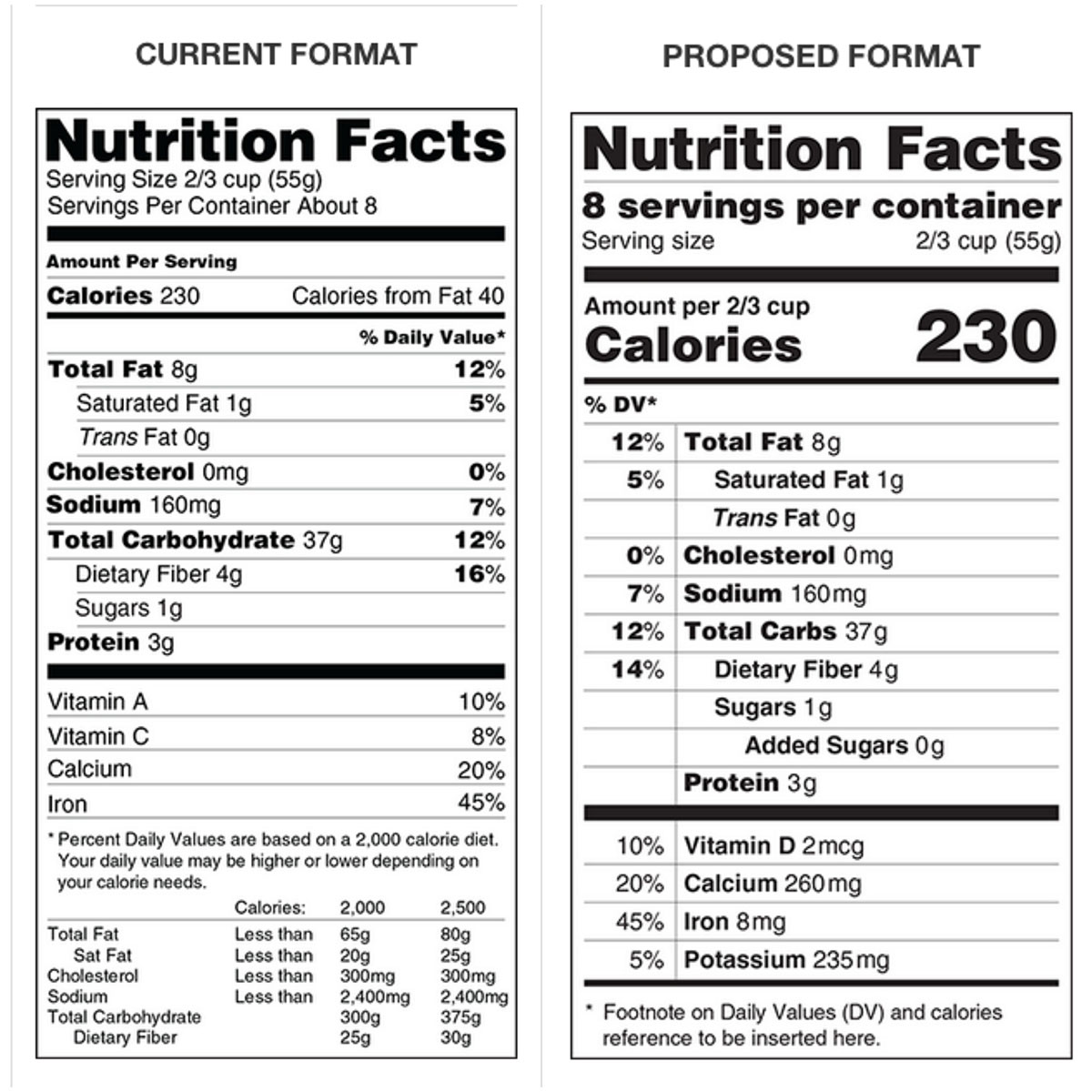
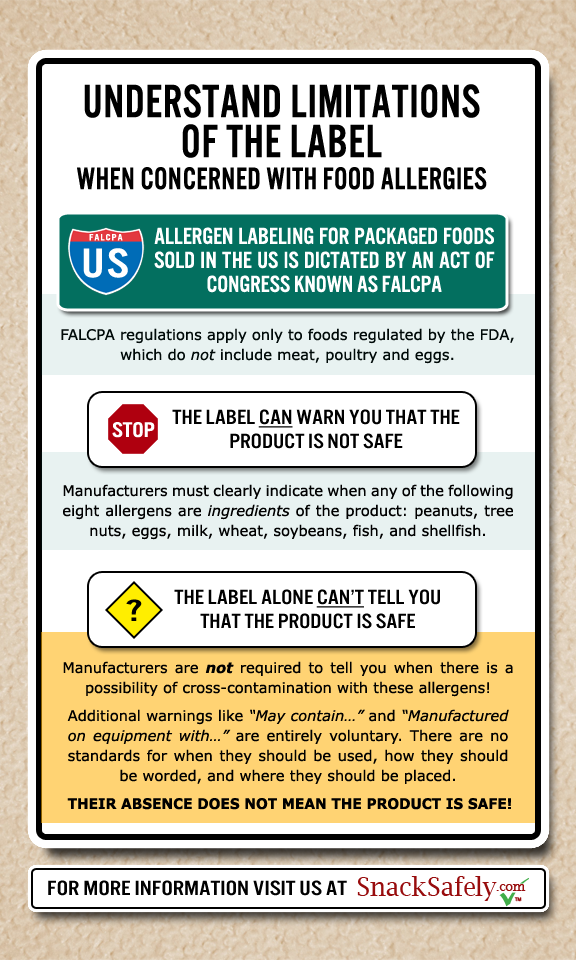

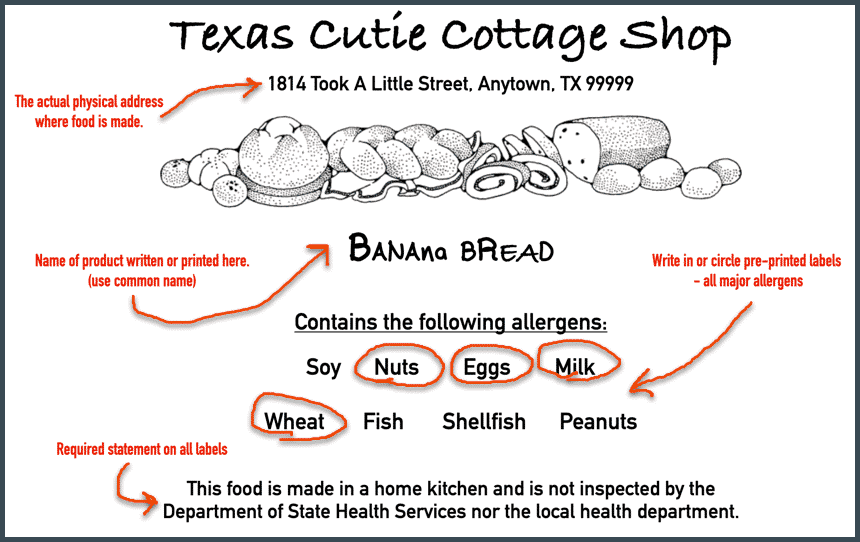

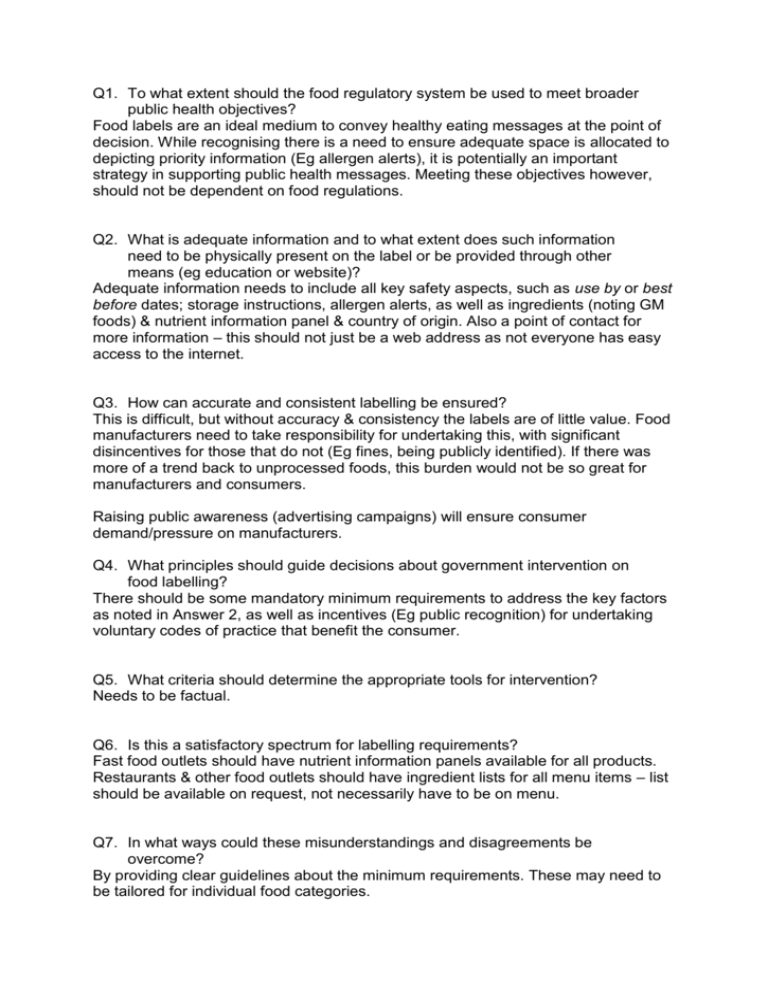
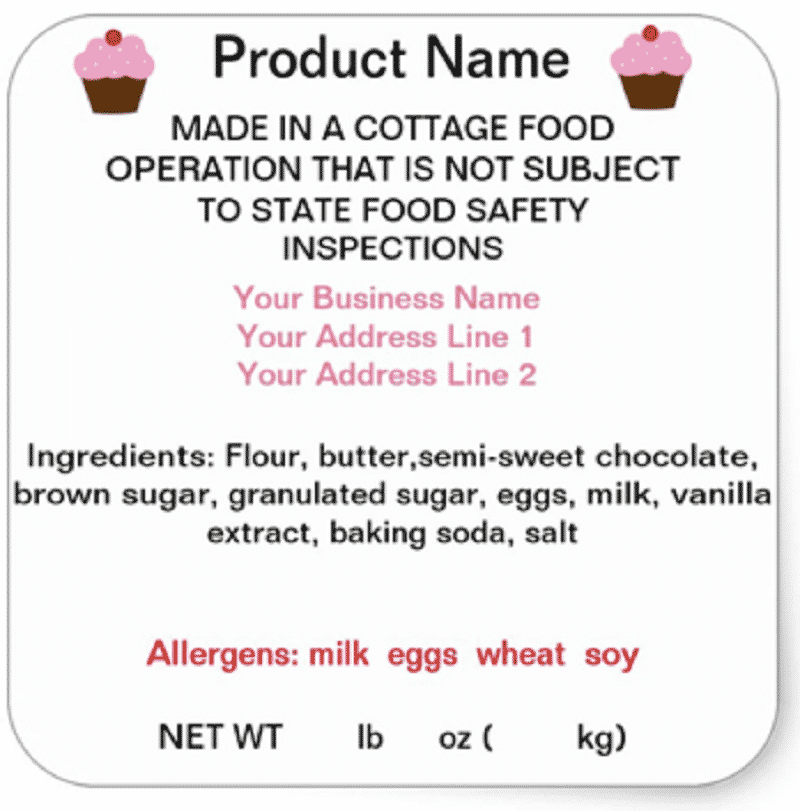
:no_upscale()/cdn.vox-cdn.com/uploads/chorus_asset/file/3648106/quaker-oats-heartlabel.0.jpg)



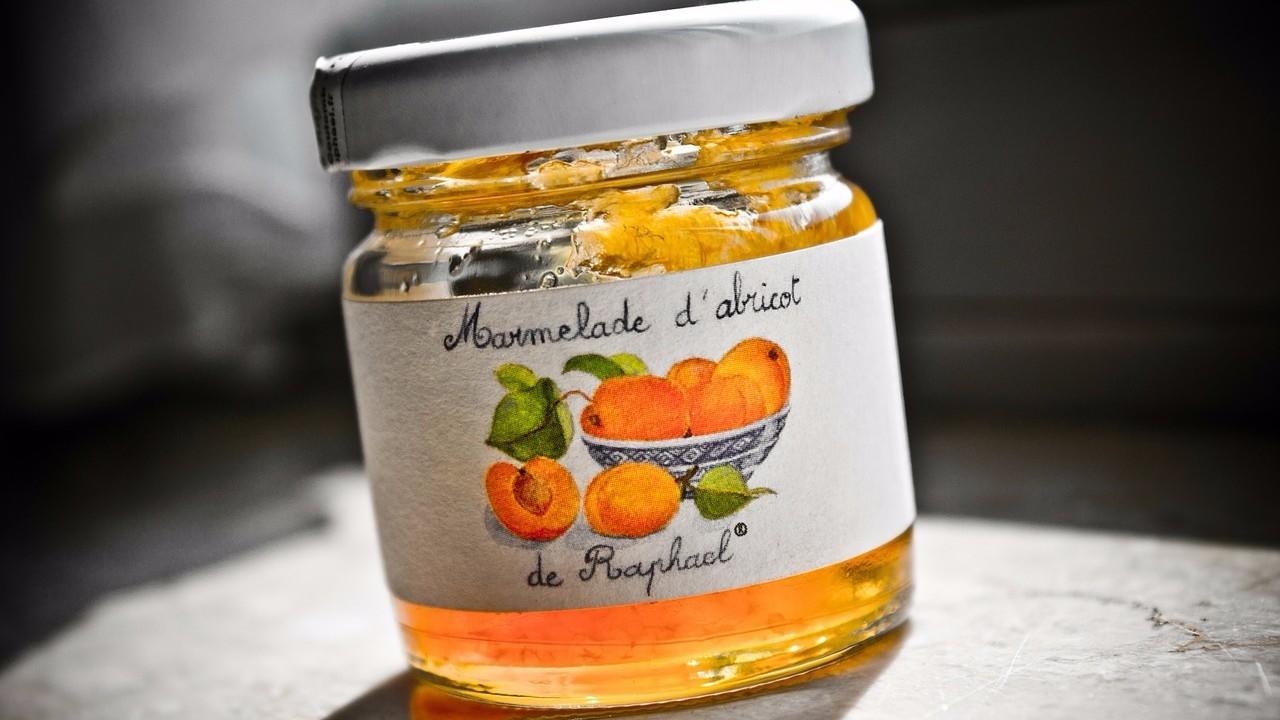


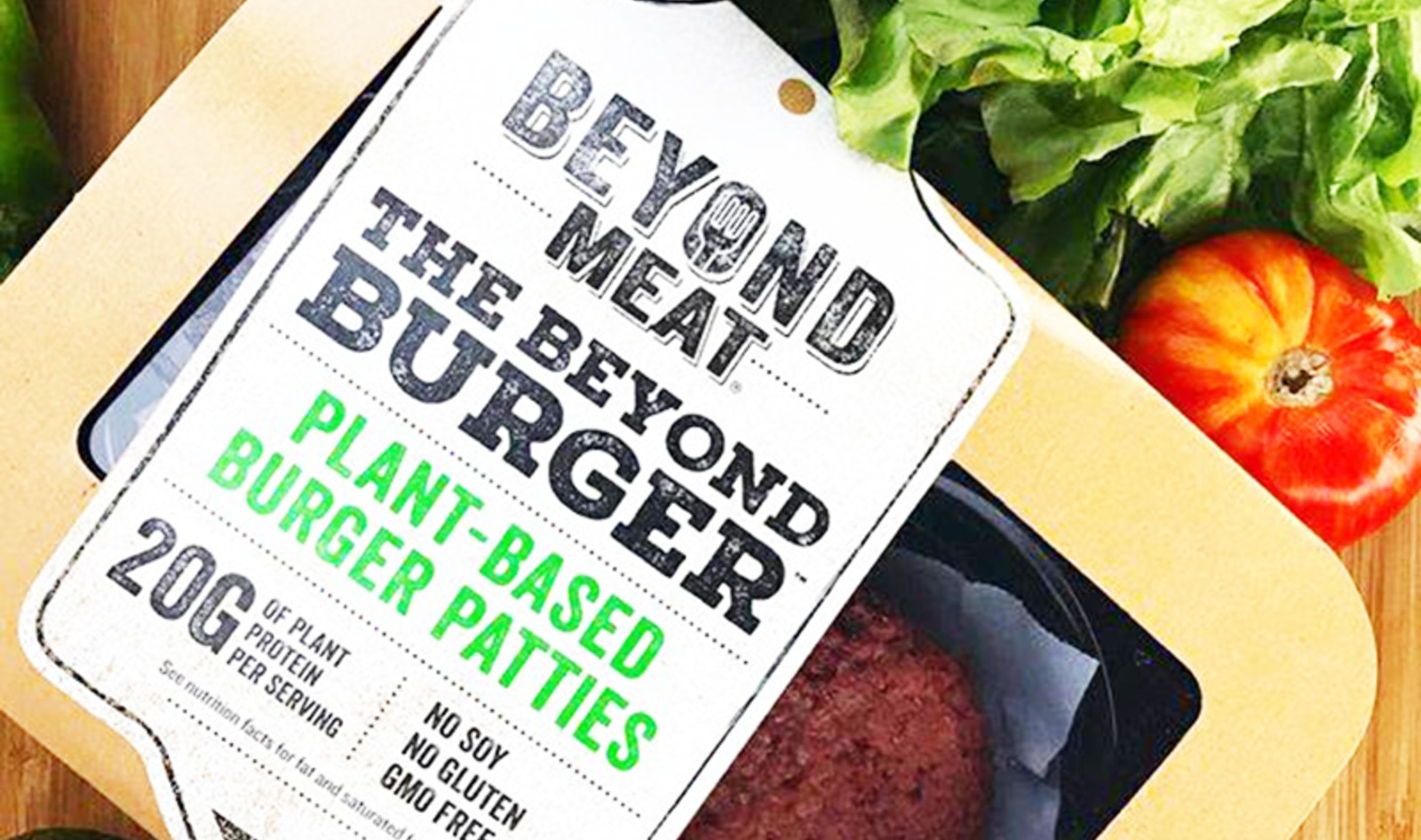


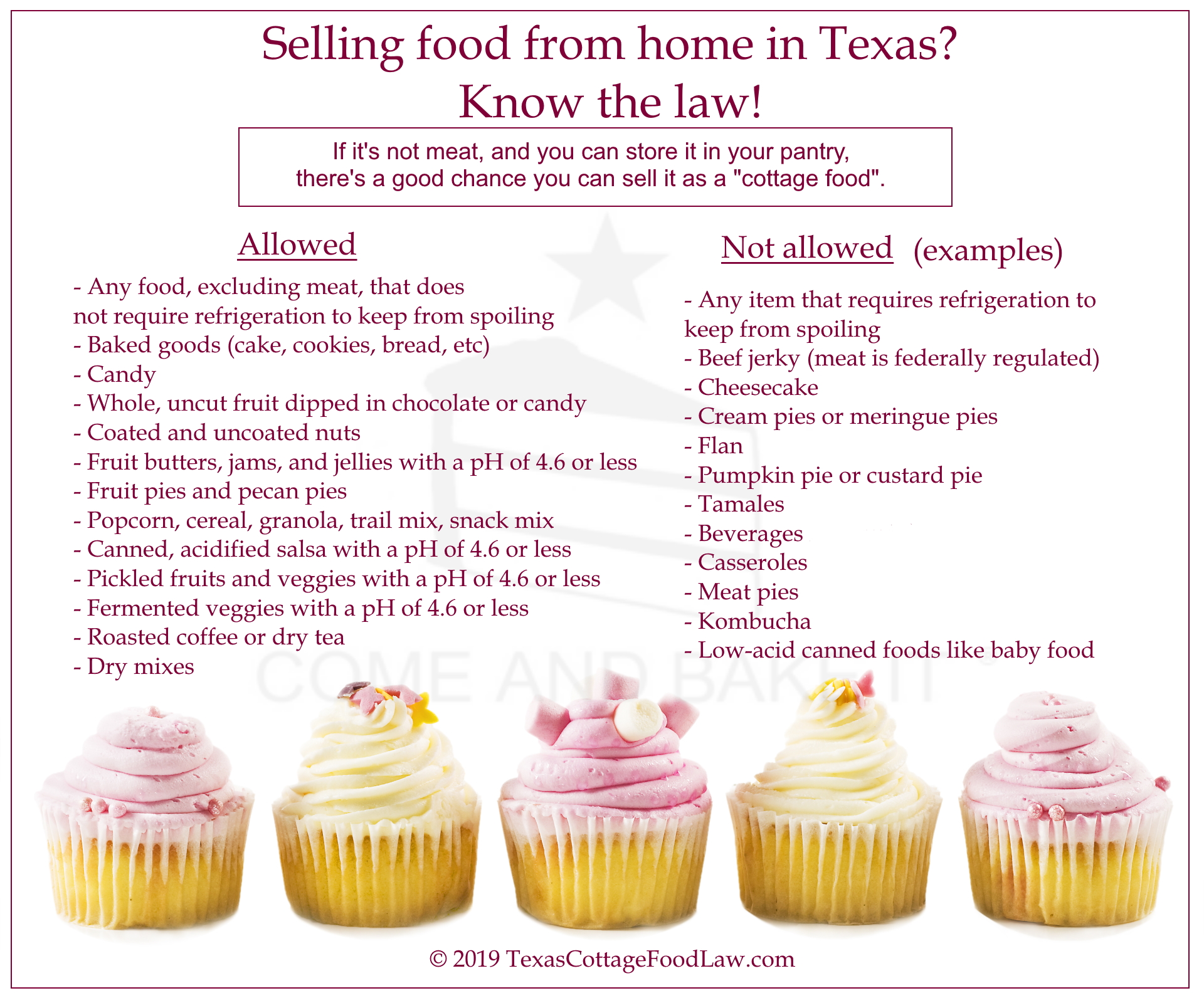
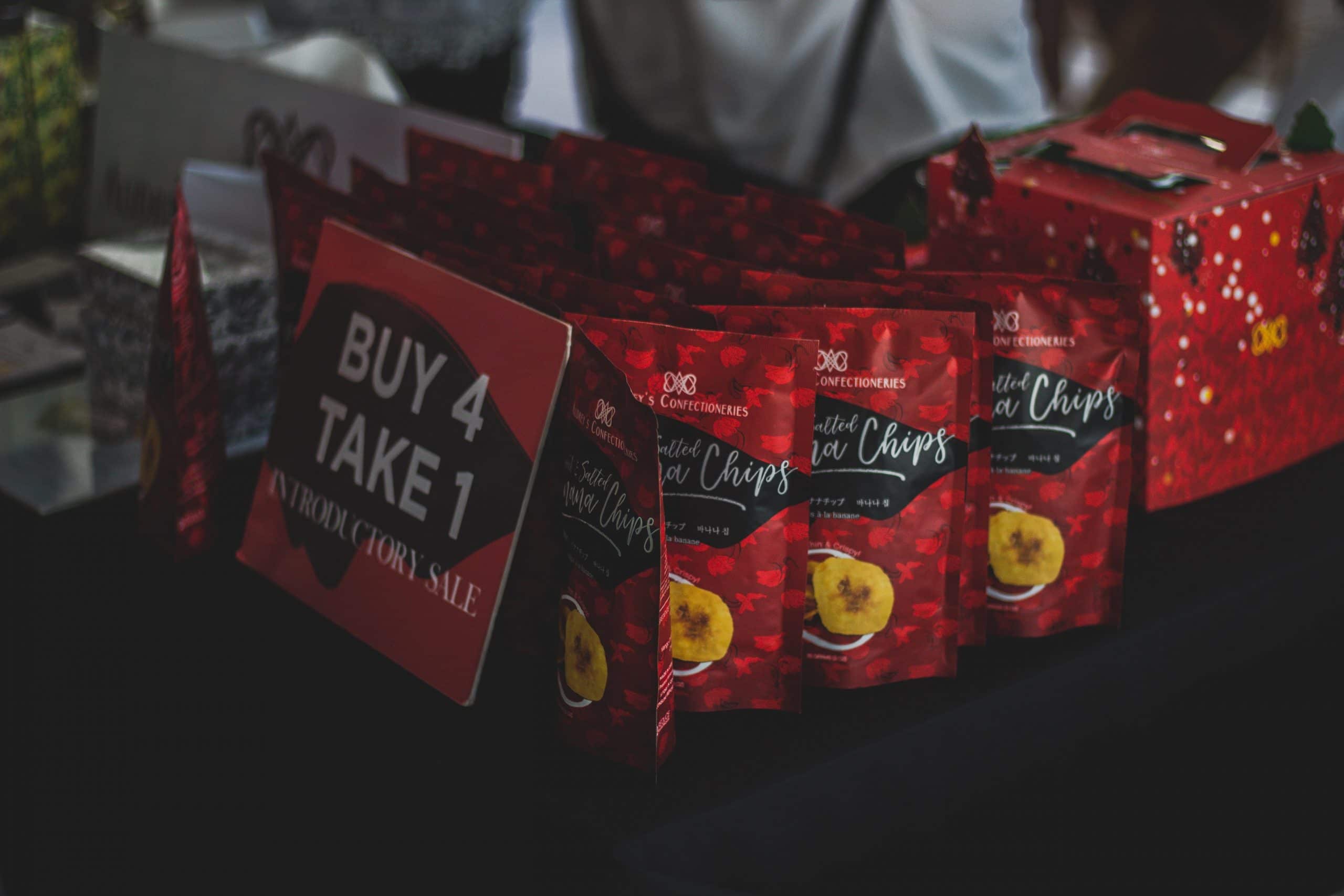

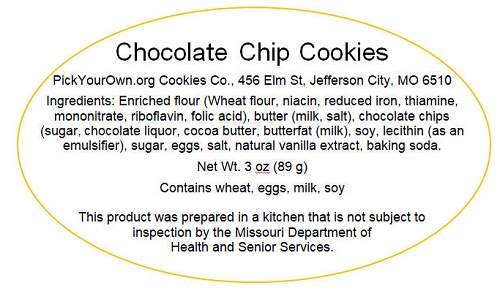
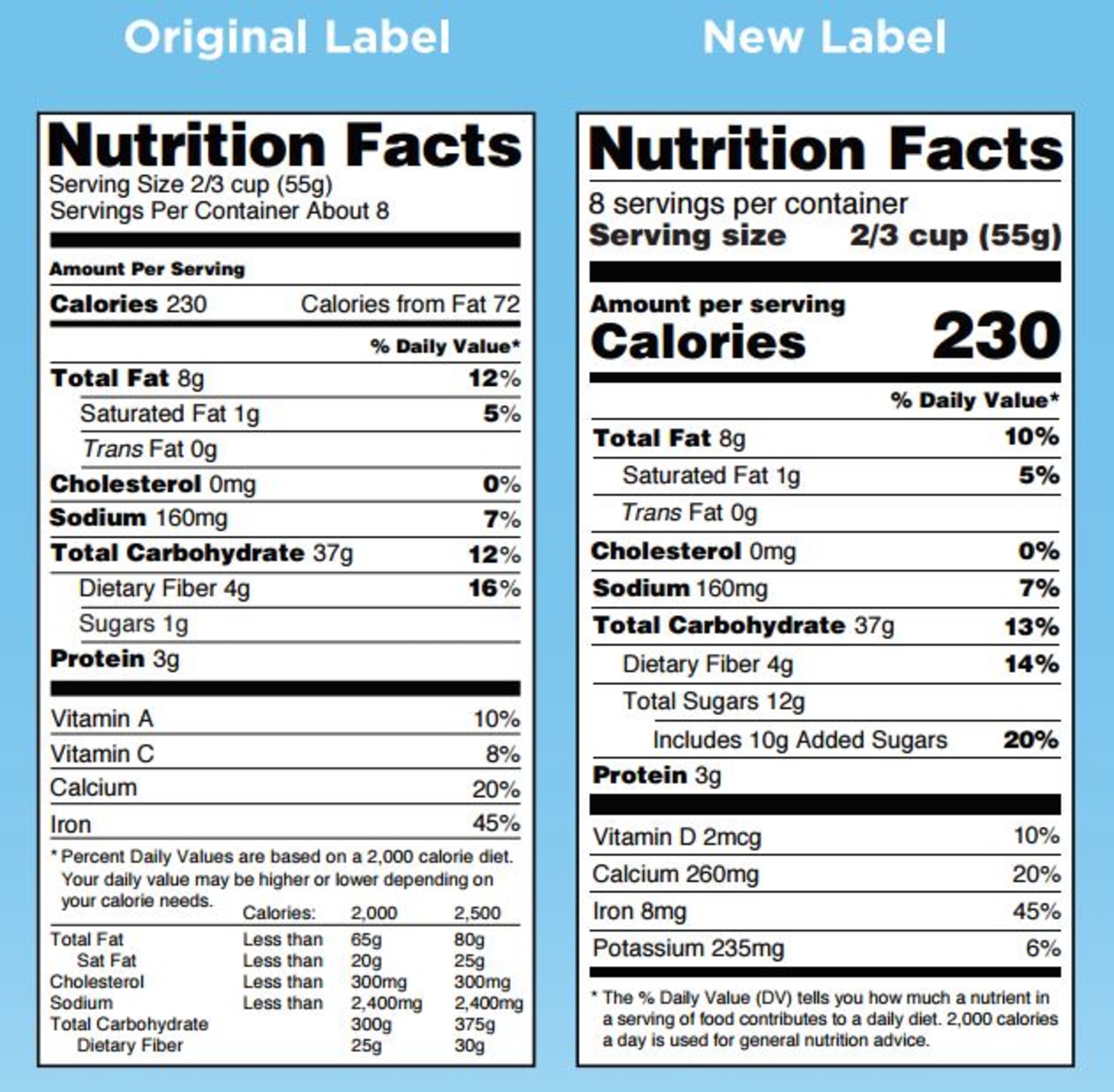


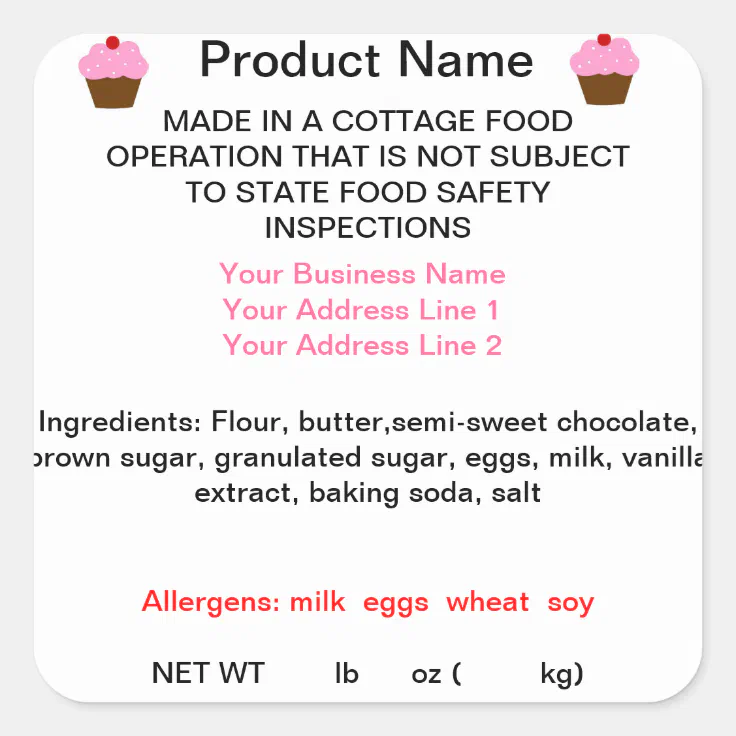
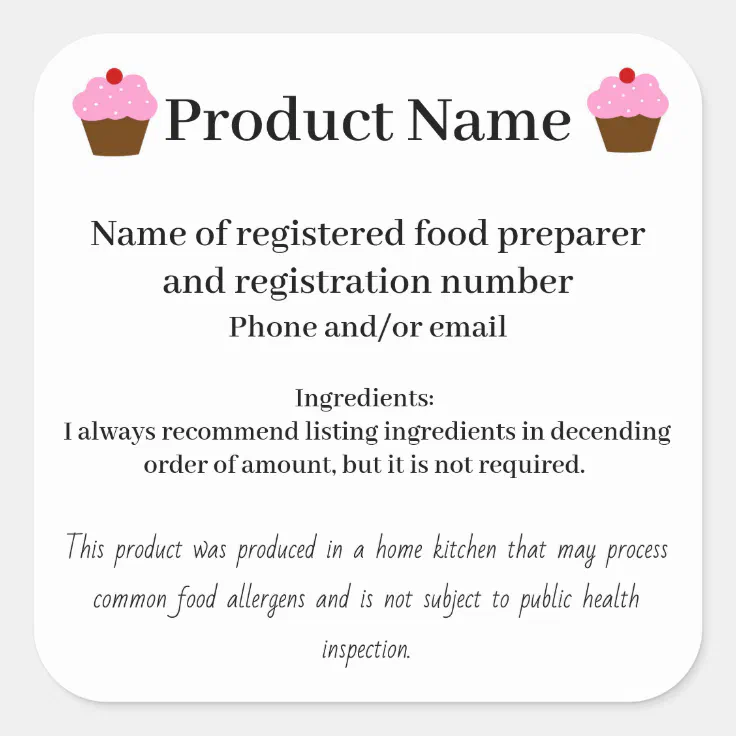



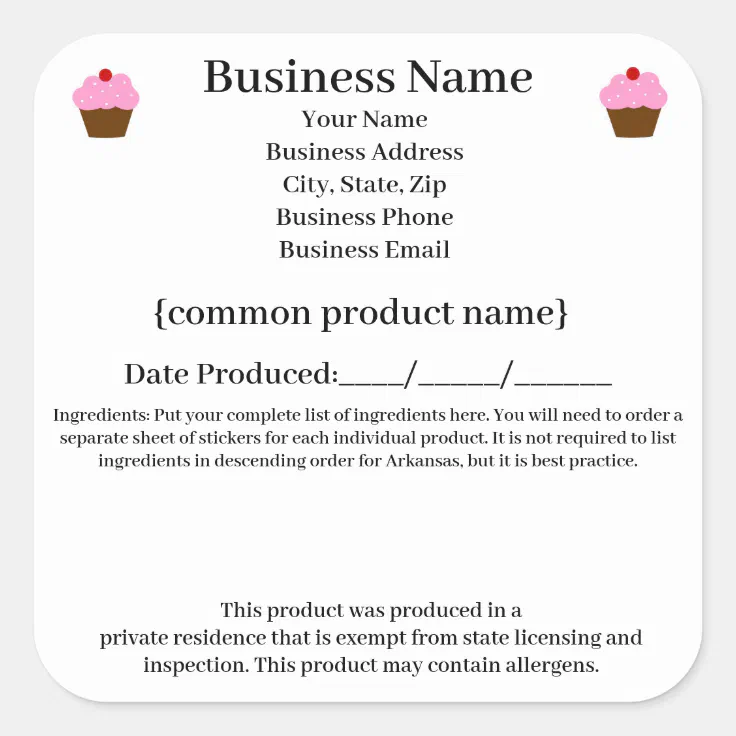


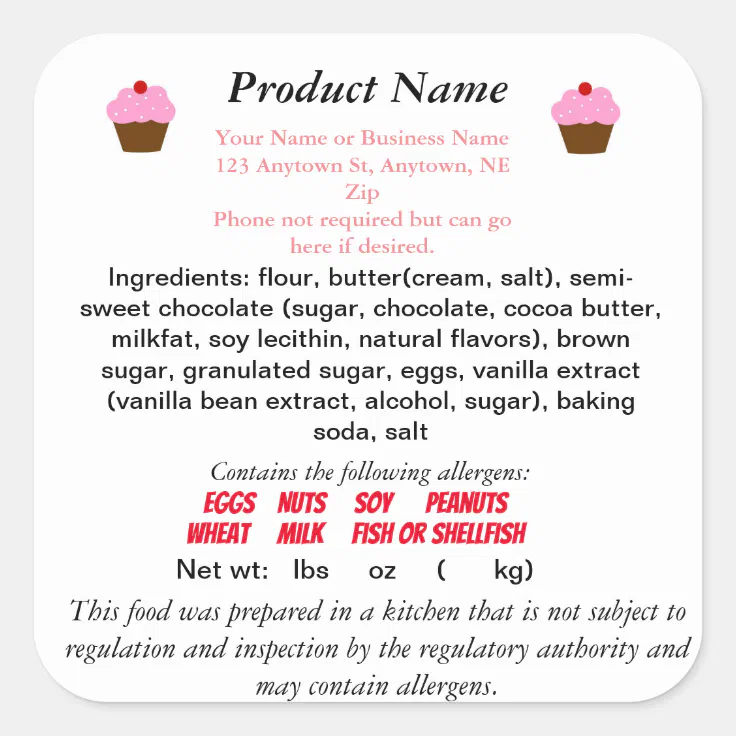

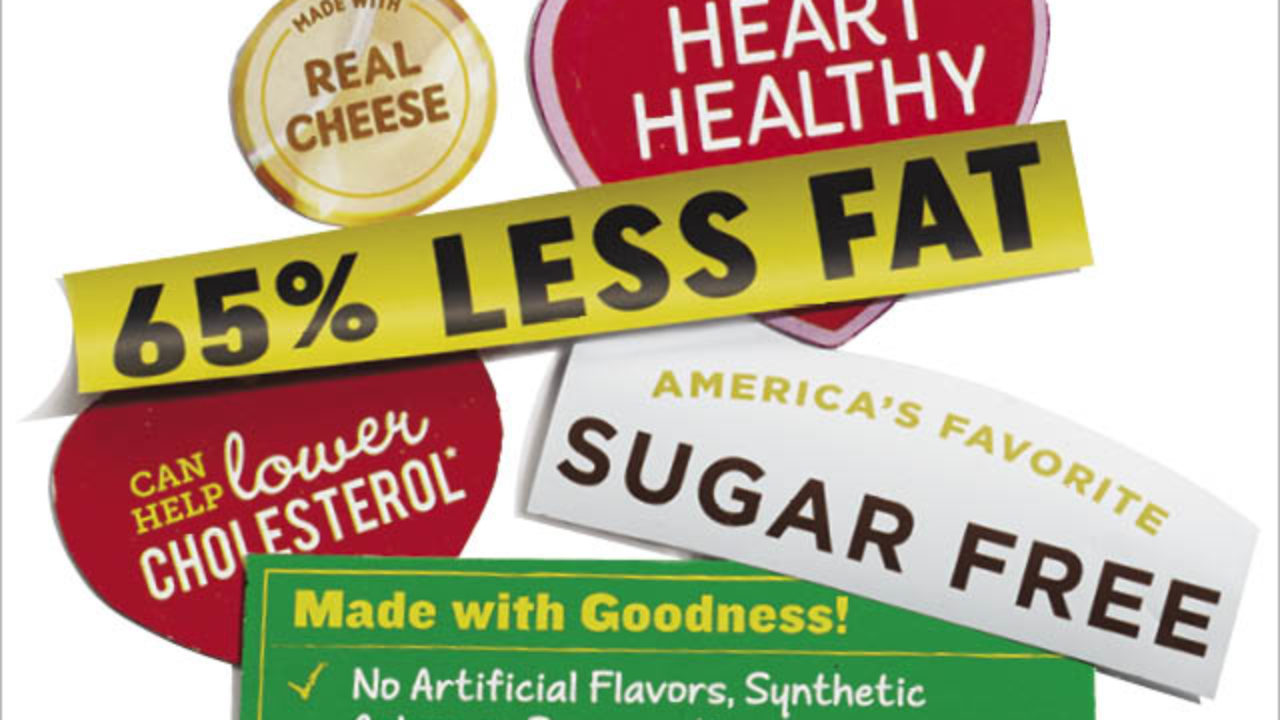

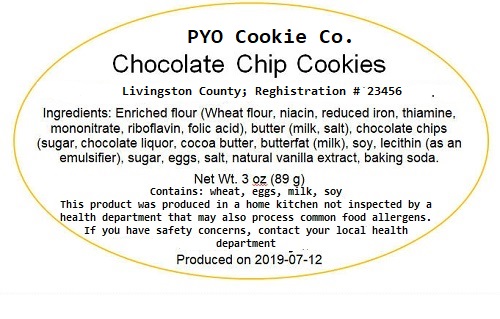
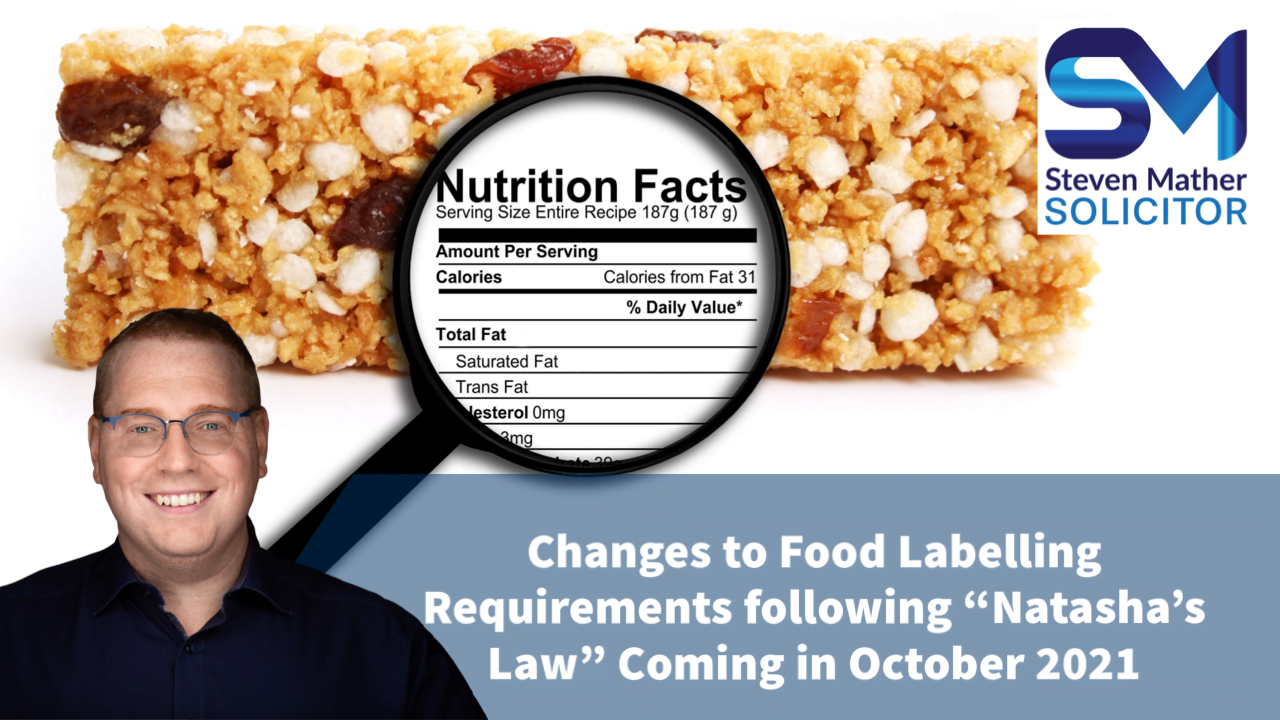


Post a Comment for "44 what food products do not need food labels by law"